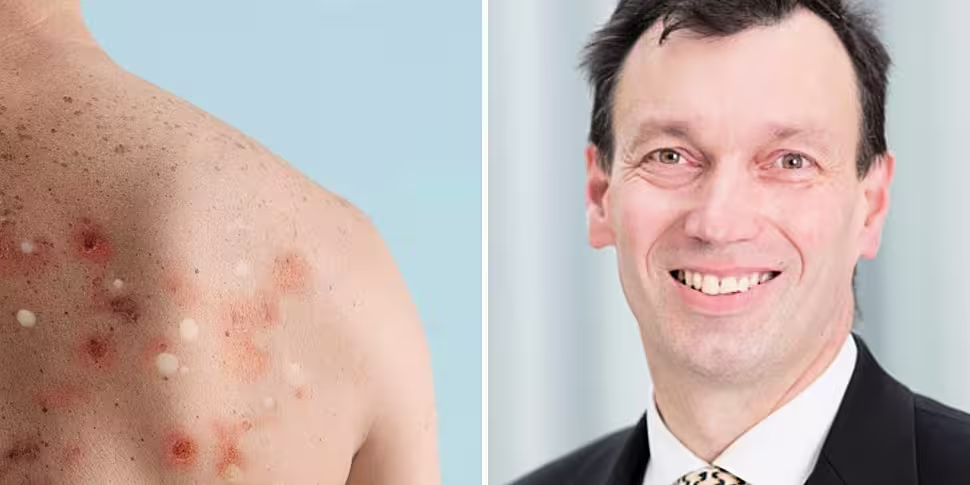The new more infectious strain of mpox that is causing concern around the world is now likely to come to Ireland, Professor Sam McConkey has warned.
Sweden yesterday confirmed that it had detected its first case of the mpox clade 1b strain – the first time the new strain has been found outside of Africa.
That came after the World Health Organisation declared the latest mpox outbreak a ‘public health emergency of international concern’ – the same category used for Ebola, COVID and the 2022 mpox outbreak.
On Newstalk Breakfast this morning, the head of the Department of International Health and Tropical Medicine at the RCSI Professor Sam McConkey said the virus is now likely to find its way to Ireland.
“We're such an open and connected country that we have to be prepared,” he said.
“Every health service, every ED, every GP practice has to be ready to diagnose a case of this new mpox needs to know where the diagnostic facilities are available – at the National Virus Reference Laboratory in UCD.
“We do have an mpox plan in place here from the previous outbreak two years ago.
“That was mainly sexually transmitted and mainly in men; this one is likely different, it's more contact and mostly in children, unfortunately, in Congo.”
Mpox
He said the new strain has been shown to have a higher death rate than the strain involved in the previous outbreak.
“In Congo, they're saying that children - about 3% to 4% - are dying,” he said.
“Now hopefully with the good healthcare in Sweden and here, the mortality would be much lower because we have very good intensive care.”
Treatment
He said there are treatments available for the virus – including a vaccine, a tablet and some injectable treatments.
“I believe if we ramp up our public health skills and look after everyone, well, we can do a good job and get out of this,” he said.
“I don't think it'll be a generalized epidemic like COVID, if that's what you are asking.”
Symptoms
Prof McConkey said the government must ensure that everyone in Ireland, especially healthworkers are fully aware of the symptoms.
“People get a spotty rash, essentially like a bad version of chickenpox, with fever, chills, headache and a spotty rash all over,” he said.
“Like cold sores except all over the body.
“It usually happens, you know, a week to two weeks after contact.
“Then people need to seek health care attention, they need to be diagnosed, they need to let public health know.
“They need to then stay in their room. Essentially have to stay in your bedroom or else outside with no contact with other people for a week or two until you're no longer infectious.”
He said the main message for the public is that people need to be vigilant but not alarmed.
You can listen back here:









